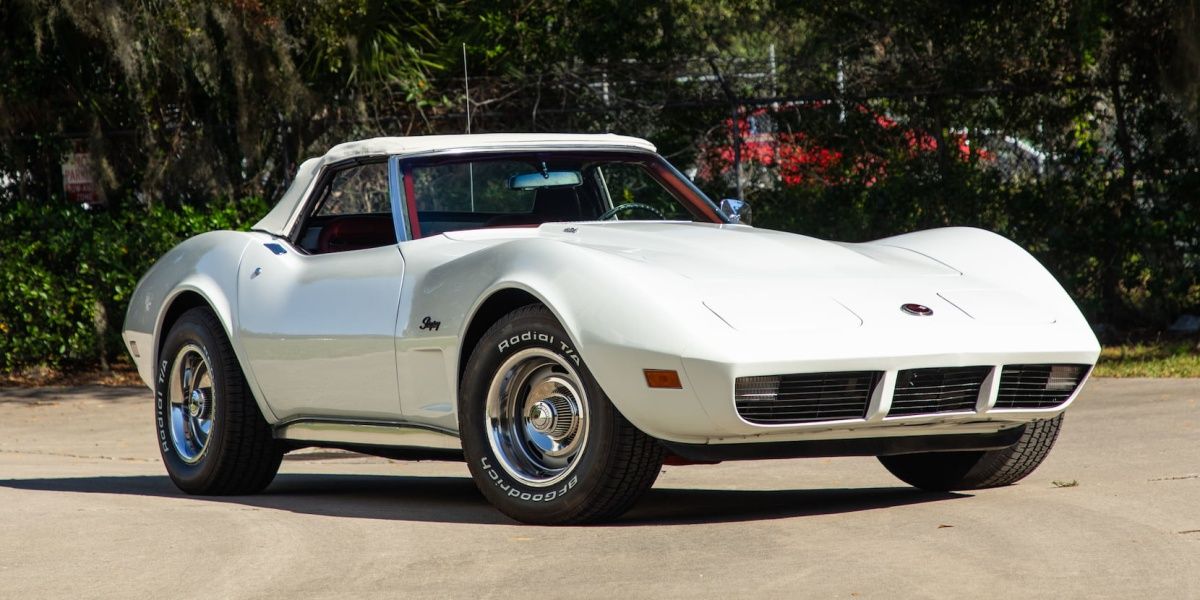Are Corvettes reliable? One of the things gearheads find so special about Corvettes is their amazing reliability and relatively low maintenance despite their powerful engines and high-performance chassis. With proper care and regular maintenance, it shouldn’t cost you an arm and a leg to maintain Chevrolet Corvette on the road for hundreds of thousands of miles until you’re ready to trade it in or find it a new home.
Corvettes hold their value quite well compared to other performance cars on the market. For example, the KBB claims that the 2021 Chevy Corvette 2-seater should retain 49.5% of its value after a solid 60 months of ownership, making the Corvette one of the best. sports cars at KBB’s annual Best Resale Value Awards.
Now, this is an estimated resale value based on the typical hard driving Corvettes are usually subjected to. That means your Corvette could come out of 60 months in great shape and with a resale value greater than 49.5 percent expected if you take proper care of it during that time. Below are simple maintenance tips to help you enjoy a trouble-free relationship with your Corvette for years to come.
10 Make friends with your Chevrolet Corvette owner’s manual
Isn’t it alarming that only 58.9% of drivers say they’ve read their daily driver’s owner’s manual? We wouldn’t even recommend ignoring your new cell phone owner’s manual (everyone is guilty of not bothering to read it) how much more is the manual for a prized asset like your Corvette?
Surely, getting to know your car intimately is the first step to taking care of it properly. Even if you’ve had the car for a while, go get this book anyway. You never know what lightbulb moment you might get.
9 Have you checked your Corvette’s suspension bushings today?
Don’t know what this is? This is not right. Bushings are rubber cushions (they can also be made of polyurethane or other suitable materials) mounted on the car’s suspension and steering joints. Its job is to absorb road shock, vibration and noise, as well as to articulate and control joint geometry. As you can imagine, Corvettes tend to be driven enthusiastically, which inevitably puts pressure on the bushings over time.
If the bushings wear out, you can say goodbye to the thrilling handling you love in your Corvette, not to mention other things that can go wrong, like tire wear, poor grip, and, well, an accident . Worse, your suspension could collapse after a ball joint failure. No need to scare you anymore. Just get in the habit of inspecting your Corvette’s suspension bushings.
8 Regularly service your Corvette’s engine with fresh oil
Changing the engine oil regularly along with the filters is probably the cheapest way to protect against engine wear. Take the most modern Gen-III LS/LT small-block V8 engine that GM developed to meet increasingly stringent emissions and fuel economy standards.
These are powerful mills, which means a lot of metal components get hot and spin very quickly, lots of friction. So, it goes without saying, you need to make sure that the oil that lubricates these components is healthy enough to do its job properly to avoid excessive engine wear. With modern lubricants, most engines today recommend oil change intervals of 5,000 to 7,500 miles.
7 Change the brake fluid in your Chevrolet Corvette regularly
Since people don’t talk about fluids as often as they do motor oil, we decided to break them down individually: clutch fluid, transmission fluid, and brake fluid. Simply put, it would take an extraordinary amount of foot pressure alone to stop the car without the aid of brake fluids.
The fluid amplifies the force of the brake pedal by pushing pressure to the calipers, which in turn squeeze the brakes against the rotor. Because brake fluid is hygroscopic, its effectiveness decreases over time, hence the importance of changing it quickly.
6 Replace your Corvette’s serpentine belts regularly
We’ll get back to fluid topics right away. But first: serpentine belts. This belt is responsible for the proper operation of your Corvette’s air conditioning, power steering, and water pump that protects your engine from overheating. In other words, you don’t want this belt (aka “drive belt”) to be half-assed (so to speak), which will inevitably happen over time due to cracks, wear and the break
It’s much easier and cheaper to replace it before it fully seizes, considering your water pump depends on it. Virginia Tire & Auto Store says your car’s serpentine belt should last between 60,000 and 100,000 miles under ideal circumstances. We still recommend checking it from time to time.
5 Your Corvette will thank you for regularly changing your transmission fluid
And back to the subject of fluid: transmission fluid. It was smart of the gears in Corvette’s engineering department to switch the C5 Corvette to a rear-mounted transaxle, with a torque tube connecting the engine to the gearbox. This was a departure from the original front-engine/RWD design of the Corvette which saw the transmission bolted directly behind the engine.
Despite improved weight distribution from the C5-generation Corvette onwards, the same basic maintenance routine of regular fluid changes is still necessary to protect the transmission against wear and ensure smooth shifting.
4 Keep replacement parts for your Corvette on hand
Corvettes are great daily drivers because Chevrolet builds and tests them specifically for daily driver and track car use. Except for limited cargo and passenger space, Corvettes are surprisingly good daily drivers despite their performance capabilities.
With basic maintenance, a Corvette can easily cover 100,000 miles like nothing, and one of the best ways to ensure that longevity is to keep some replacement parts like spark plugs and oil filters on hand for emergency repairs .
3 Respect your Corvette by keeping it clean
There’s something cool and manly about a 4X4 like the Ford Bronco stuck in the mud. But your Corvette is a sports car and shouldn’t get the same treatment as a Land Rover or Jeep Wrangler. So, how often should you wash your Chevy Corvette? It depends on the environment where you drive the car most often.
Ganther recommends washing your car every two weeks if the weather isn’t too harsh where you live. However, if you apply a layer of wax at the end of each cleaning session, you may be able to wash it less often. Keeping your Corvette clean isn’t just for show. In fact, it can help protect against rust.
2 Check your Corvette’s clutch fluid reservoir
And here’s a more fluid topic to clear up: clutch fluid. It’s a good thing your Corvette probably has a separate brake fluid reservoir from the clutch fluid. Most Corvettes do, and that’s a good thing because Corvettes are notorious for ruining their clutch fluid with debris and contaminants.
All that hard throwing and rough use (or abuse) of the clutch increases the chances of clutch dust getting into the fluid. This can make gear changes more difficult than they would normally be. Check the condition of the fluid in the reservoir. If it doesn’t look good in there, just get rid of the old fluid with a baster or fluid extractor and replace it with new brake fluid. easy
1 Worn tires are not good for your Corvette
Ill-fitting shoes are not good for your feet, knees, joints and back. Nor are they the “bad fit tires” for the quality and longevity of your Corvette. Armed with a tire gauge, you can properly inflate your Corvette’s tires to the manufacturer’s recommended air pressure for your specific model.
Manufacturers design sports car tires to perform best at certain air pressures. We may have placed this one at the bottom of the list, but healthy tires are not the least factor in your relationship with your car. In fact, nothing else can uniquely and severely affect braking, cornering, acceleration, ride comfort and overall stability like tires.
With these tips, don’t be surprised if you hardly ever need to take your car to a Corvette mechanic. Even owners of new cars and greener gear can take on most of these maintenance routines themselves.












